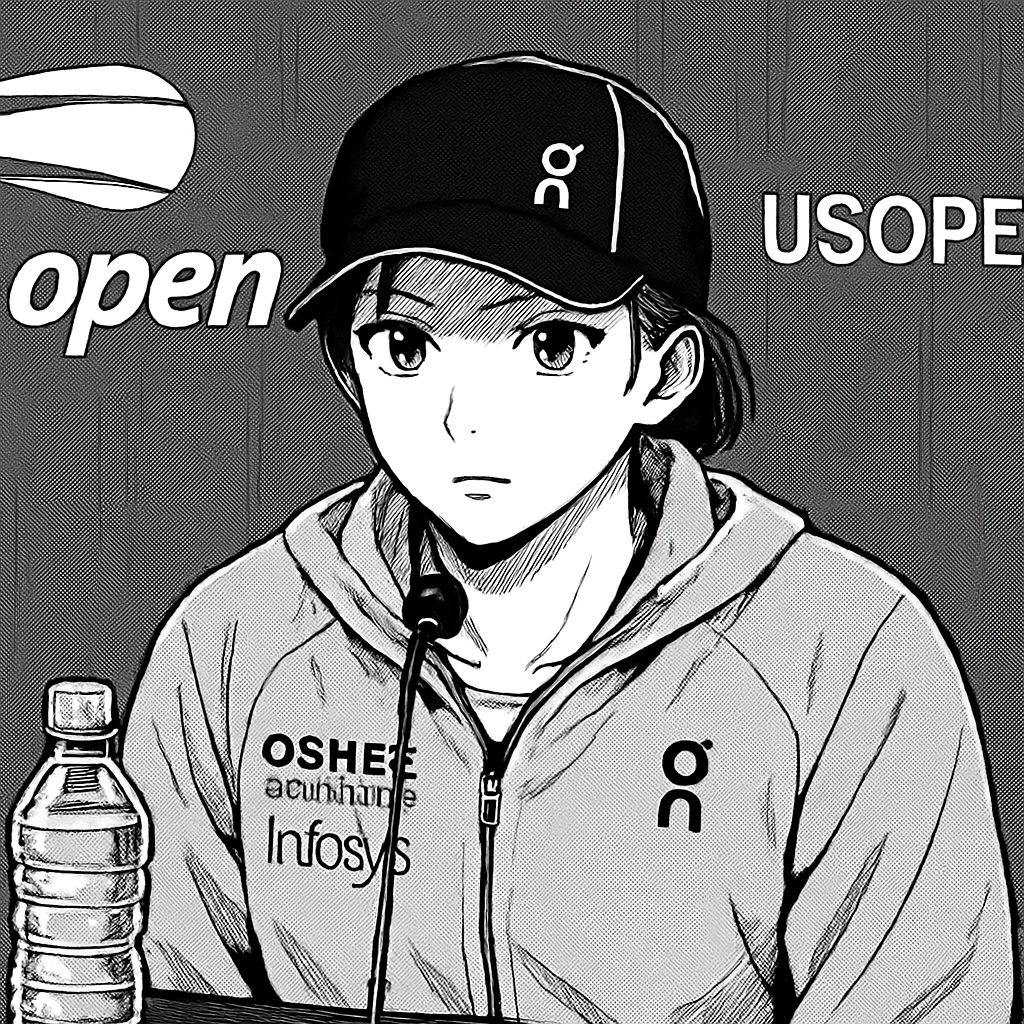NEW YORK — World No. 1 Iga Swiatek’s typically composed demeanor fractured during a tense US Open press conference on Sunday, following her straight-sets victory over Czech qualifier Tereza Martincova. The four-time Grand Slam champion became visibly frustrated and uttered the words "why would you say that?" in response to a line of questioning from a journalist, creating an awkward and charged atmosphere in the media room.
The exchange occurred after Swiatek had comfortably dispatched Martincova 6-3, 7-5 to advance to the second round. Initially fielding standard questions about her performance and adjusting to the New York conditions, the mood shifted when a reporter referenced comments made by her former sports psychologist, Daria Abramowicz. The query suggested Abramowicz had implied Swiatek was not yet ready to discuss a particular personal topic publicly.
The Tense Exchange
Swiatek, who has been open about the value of mental coaching in the past, immediately appeared taken aback and defensive. She pressed the journalist for clarity, asking exactly what had been said and in what context. The reporter clarified that the comments were made during a recent podcast appearance by Abramowicz, who now works with other athletes.
A clearly irritated Swiatek responded, "I have no idea what you are talking about, and honestly, I don't think that's the kind of question you should ask." When the reporter persisted, attempting to paraphrase the psychologist's remarks, Swiatek interjected with a tone of disbelief, "But why would you say that? That's not her place."
Navigating Personal Boundaries
The incident highlights the intense and often invasive scrutiny top athletes face, particularly regarding their mental health and personal development. Swiatek has frequently credited her work with Abramowicz as a cornerstone of her success, but she has also been careful to maintain boundaries between her public and private life.
Following the awkward moment, Swiatek took a breath and attempted to reframe the conversation. "Look, my team and I, we have a great relationship built on trust. What we discuss privately stays private. I'm not going to comment on something I haven't heard directly from her."
This stance is consistent with Swiatek’s previous approach to media interactions. She is generally regarded as one of the most thoughtful and articulate players on tour, but this exchange demonstrated her clear limits. The line of questioning seemed to cross into an area she considers off-limits, touching on the confidential nature of athlete-psychologist relationships.
- Respect for Confidentiality: The core of Swiatek's frustration appeared to stem from a perceived breach of trust and the public dissection of a private therapeutic relationship.
- Media Pressure: The moment underscored the immense pressure on athletes to divulge personal details for public consumption.
- Setting Boundaries: Swiatek’s reaction was a firm, public setting of a boundary, a rare and telling moment from the usually unflappable Pole.
Contrasting Reactions and Fan Response
Reactions to the clip, which quickly circulated on social media, were mixed. Some commentators and fans criticized the journalist for asking a question based on hearsay about a sensitive subject. Others felt Swiatek’s reaction, while understandable, was unusually sharp for a player known for her media savvy.
Tennis journalist Ben Rothenberg posted on X (formerly Twitter), "Swiatek is usually a press conference pro, handling even the most inane questions with grace. This one clearly hit a raw nerve. A reminder that even the most composed champions have boundaries that, when pushed, reveal the immense weight they carry."
Many fans rallied behind the top seed, applauding her for defending her privacy. One fan wrote, "Good for Iga. That relationship was crucial for her mental health and success. It's nobody's business but hers." The incident has sparked a broader conversation about the ethics of sports journalism and the limits of acceptable inquiry into an athlete's personal support systems.
Moving Forward in the Tournament
Despite the off-court tension, Swiatek’s focus remains squarely on defending her US Open title. She is scheduled to face former Australian Open champion Sofia Kenin in the second round, a potentially tricky matchup. When asked about the upcoming challenge, Swiatek had returned to her typical, focused demeanor.
"Sofia is a great player and a Grand Slam champion. She can play really high-level tennis," Swiatek said. "I have to be ready from the first ball. I need to focus on my game, my tactics, and not let anything from the outside affect my performance on the court." It was a clear statement of intent, a conscious shifting of focus back to the tennis after a brief but revealing glimpse into the pressures that come with being the world's best.

